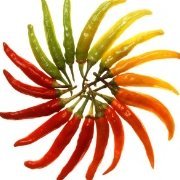Borrowed Words in the Thai language
-
Recently Browsing 0 members
- No registered users viewing this page.
Announcements
-
Topics
-
Latest posts...
-
28
Japan dethrones Thailand as top tourist spot
What has a dearth of Japanese long-term visa options got to do with their burgeoning tourism? -
134
Are we really better than the Russians, Indians, Arabs and Chinese in the eyes of Thais?
Backpackers let the team down. Totally horrific set of tourists that Thailand wanted to get rid off - that is until Sretta came along and welcomed all cheap tourists. -
20
Exploration of the Virgin Birth That Maybe Wasn’t
Who puts it there, the holy ghost? -
7
Trump Calls for Return of Panama Canal Over "Unfair" Transit Rates
Upon opening in 1914 it cost the equivalent of $38/ton. Today the cost is $10/ton. 😂😂😂😂Astronomical 🤣🤣🤣🤣 Where do you get this drivel? Oh wait, I know 🤣🤣 -
33
US Warplane Brought Down in Red Sea Amid “Friendly Fire” Incident
Your post makes absolutely no sense. -
28
Japan dethrones Thailand as top tourist spot
While part of Japan, Okinawa has its own unique cuisine and culture. In Hawaii, people of Okinawan ancestry have their own social cliques and organizations. -
44
Jomtien: Mystery Death of Thai Woman: Foreign Partner Lived with Corpse for 3 Days
Nobody knows if he had dementia. Nobody knows if she was on drugs and nobody knows if or who assaulted her or if she was assaulted. Plenty of time for CCTV to be erased also. We will have to wait for test results and forensics. -
27
Dutch tourist allegedly escapes bills and steals from many Phuket hotels
escapes bills ?????? what a strange wording, evades yes, escapes?
-
-
Popular in The Pub
.png.3b3332cc2256ad0edbc2fe9404feeef0.png.8488ab72b8bb2e508209bfe3211b6e08.png)


.thumb.jpg.4fd22303fa94eb0a6ebf5a9cf7194eb4.jpg)
.thumb.jpg.b54783ad387f65d779e04f535fcfeee9.jpg)

.thumb.png.59631667ecf82c97db947523760c9cdd.png)

Recommended Posts
Create an account or sign in to comment
You need to be a member in order to leave a comment
Create an account
Sign up for a new account in our community. It's easy!
Register a new accountSign in
Already have an account? Sign in here.
Sign In Now